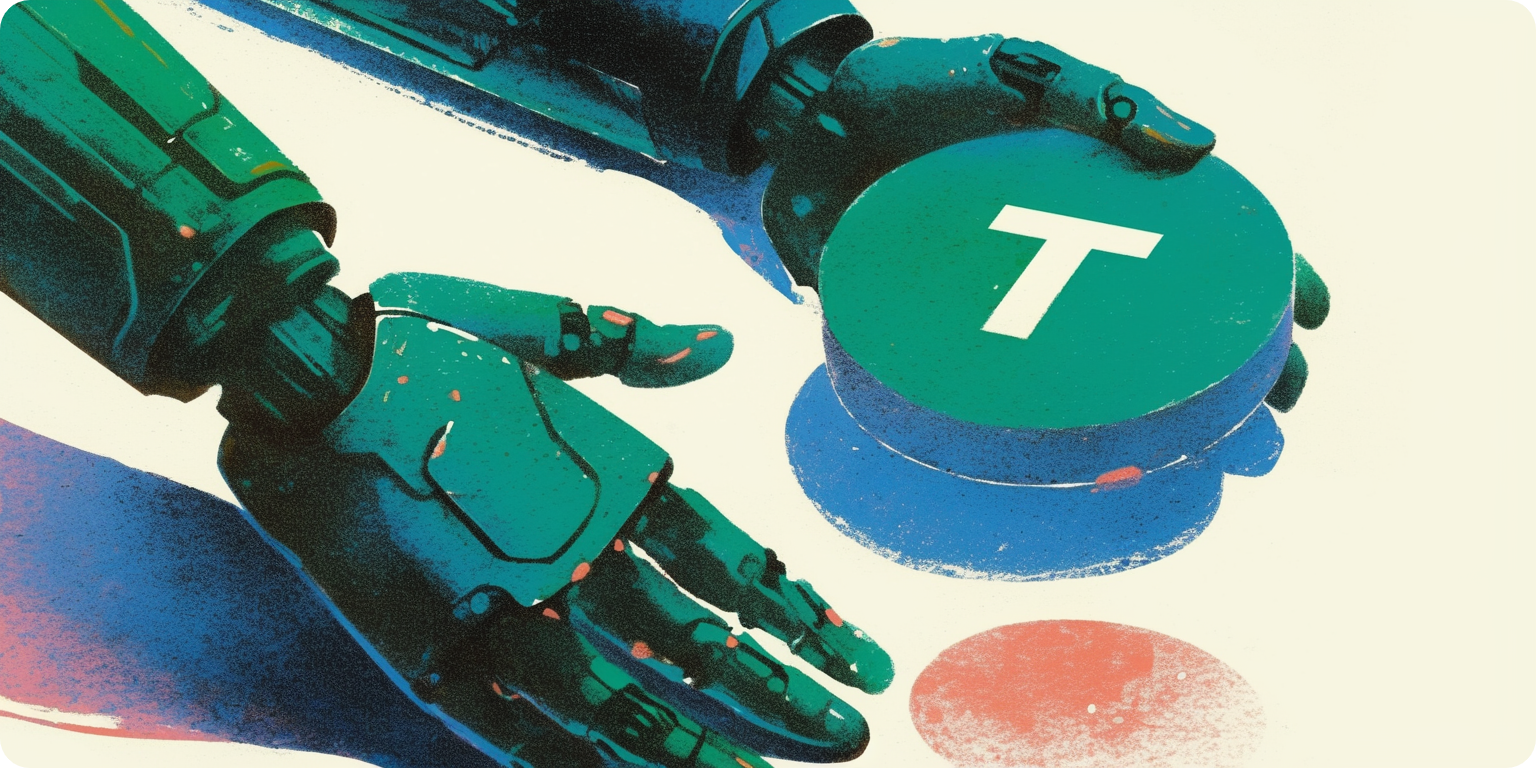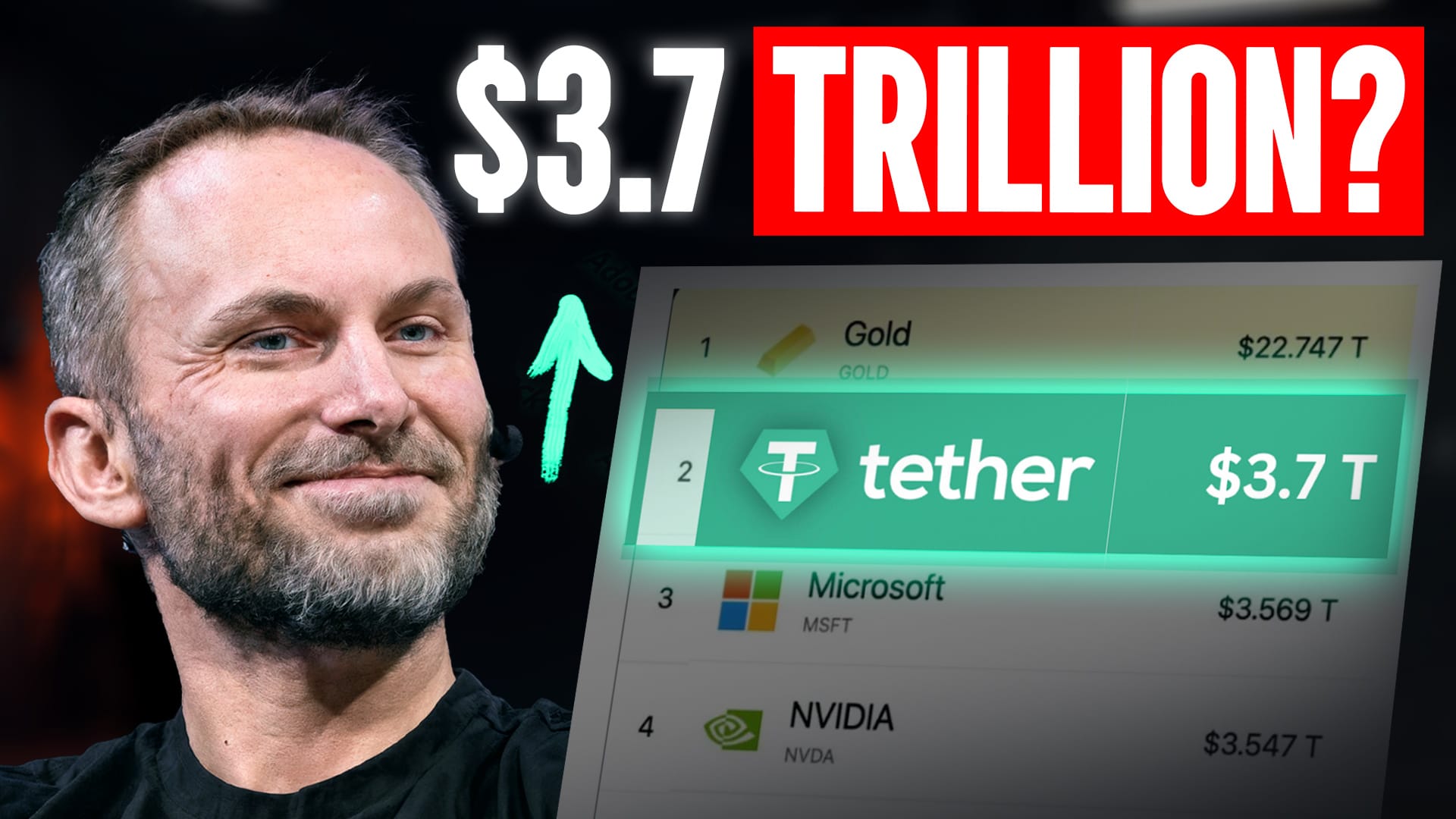5 Takeaways from Tether CEO Paolo Ardoino's Bankless Interview

According to DefiLlama, Tether's USDT stablecoin currently boasts a +$156B market cap—more than double that of the next closest contender, Circle's USDC, which is over $60B.
This domination has become more interesting amid two major pieces of news this month:
- Circle's blockbuster post-IPO stock surge, which has taken the stock to a $60B market cap.
- The progression of the GENIUS stablecoin bill through Congress – a bill that establishes concrete criteria for stablecoin issuers, criteria not currently met by USDT.
Against that backdrop, Bankless hosted Tether CEO Paolo Ardoino to discuss the shifting regulatory landscape and the excitement surrounding its chief stateside competitor.

How will the largest stablecoin project evolve in the face of this great legal shift, and what else is the company cooking up right now? Below are 5 of the biggest highlights from the interview to keep on your radar 👇
5️⃣ Massive Profits
According to Ardoino, Tether made a whopping $13.7 billion in profits last year.
That places Tether among the most profitable companies in the world, outperforming TradFi heavyweights like Morgan Stanley ($13.4B), Mastercard ($12.9B), and Citigroup ($12.5B) in the same span.
Notably, Tether is one of the largest purchasers of U.S. Treasuries globally, so over half of last year's profits came via raking in Treasury yields.
4️⃣ GENIUS Act Compliance
Though USDT currently falls short of complying with the GENIUS Act's core criteria for stablecoin issuers, Ardoino wants to find a path forward.
In our interview, Ardoino said that Tether will aim to bring USDT to meet the requirements of the GENIUS Act through a comparability process as a foreign issuer. In parallel, Tether is also planning to launch a U.S.-native stablecoin built specifically for the domestic market and designed to compete on programmability and utility.
Ardoino argued that the U.S. is likely to become a “race to the bottom” on profits, with emerging markets offering more massive room for growth – a comment that none too subtly aims to elevate Tether's growth narrative over Circle's.
3️⃣ $4+ Trillion Company?
Despite Circle’s hot IPO and surging interest from Wall Street in stablecoin issuers, Tether has no intention of going public.
Ardoino made it clear that Tether doesn't need outside capital, and that its founders aren't looking for an exit.
Ardoino welcomed Circle’s IPO as a useful comparison, adding that the hefty public valuation for Circle should only strengthen Tether's position. With Circle's current sky-high price-to-earnings multiple, Tether would be worth above $4 trillion at a similar multiple.
2️⃣ Mining Dominance
Ardoino says that Tether soon aims to become the world’s largest Bitcoin miner.
The company already holds over 100,000 BTC on its balance sheet, and it sees mining as the natural next step in protecting its Bitcoin treasury and securing the network it depends on.
In Ardoino’s words, “99% of the time, you’ll make more by buying BTC directly.” Instead, Tether’s mining expansion is about long-term alignment: if you hold billions in BTC, you want skin in the game securing its future.
It’s a play that mirrors nation-state logic more than typical corporate strategy. By vertically integrating from stablecoin issuance to mining infrastructure, Tether positions itself not just as a financial institution, but as a sovereign-like pillar of the crypto economy.
1️⃣ Tether Wallet Plans?
Tether is working on an open-source wallet development kit (WDK), and Ardoino hinted it may release its own branded wallet later this year.
The goal? A multichain, fee-optimized wallet that can automatically route transactions to cheaper chains and is designed with emerging markets and machine users in mind.
That last point is key. Ardoino envisions a future where AI agents use wallets natively, like your smart fridge holding USDT and buying groceries for you. To prepare, Tether is building infrastructure for noncustodial wallets that work for both people and machines, from $30 smartphones to industrial IoT.
Tether is one of the world's most profitable companies and it continues to invest in new efforts to secure its long-term status as a crypto superpower that not only dominates stablecoin issuance but can also own the rails for how people interact with digital dollars around the world. Stay tuned.
